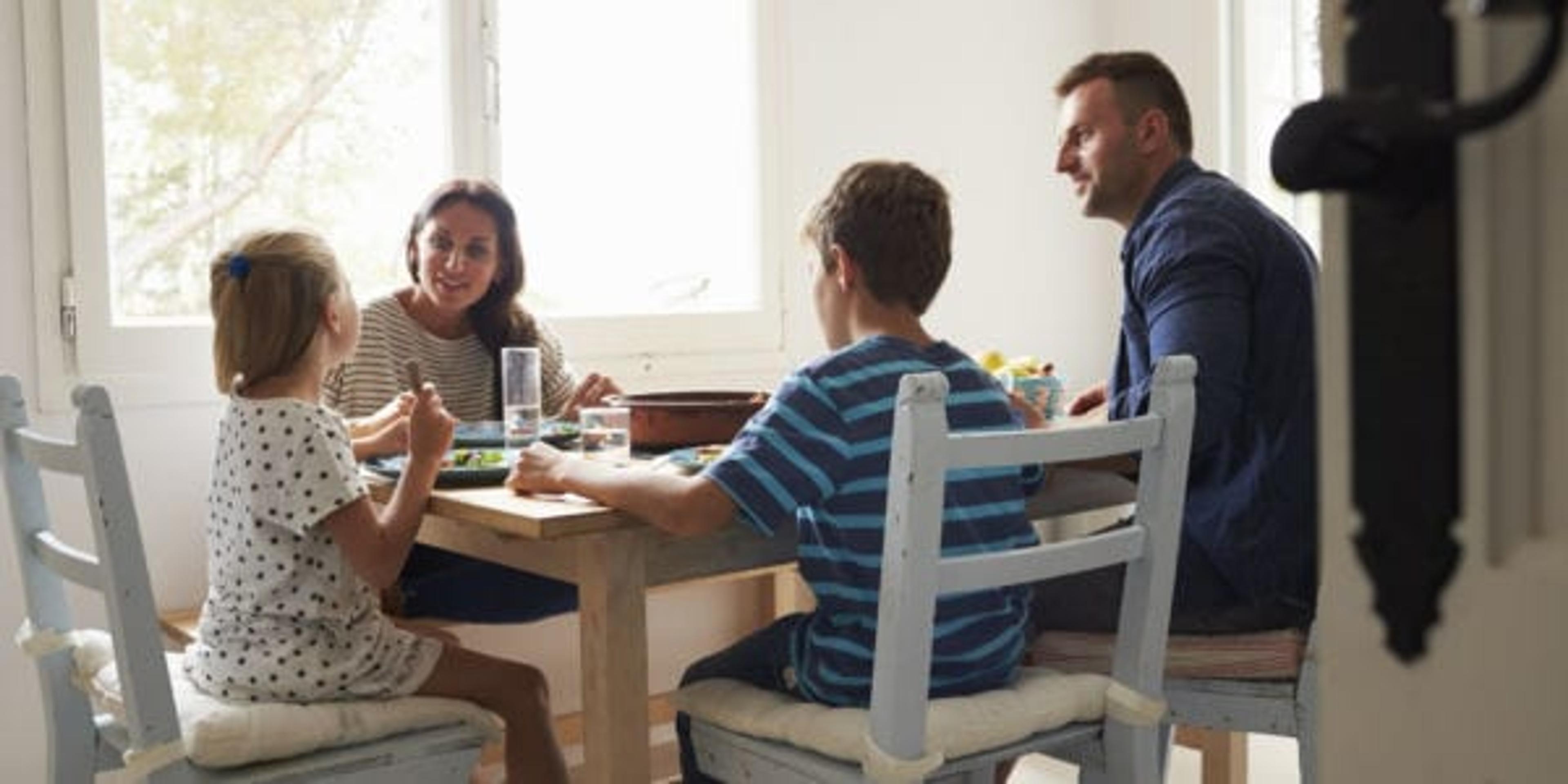How Family Dinners Help Kids Avoid Drugs and Alcohol

Julie Bitely
| 3 min read

Having regular family dinners can do a lot more for your kids than simply keeping them healthy and well nourished.
National research shows sitting down and sharing a meal can help kids and teens resist the temptations of drugs and alcohol.
In a report from the National Center on Addiction and Substance Abuse at Columbia University (CASA Columbia), teens who have infrequent family dinners (fewer than three per week) are almost four times more likely to use tobacco, more than twice as likely to use alcohol and marijuana, and less likely to perform well academically, when compared to teens who have frequent family dinners (five to seven per week).
Kids who participated in frequent family meals were more likely to confide in their parents. This study also found that the kids who don’t drink or do drugs often cited their parents as the reason why.
Another study from North Dakota State University found that children benefit from the “protective” aspect of family meals. Frequent family meals foster a more open environment for kids to talk to their family about their day, their feelings and whatever else may be on their mind. This openness decreases the kids’ likelihood to turn to drugs and alcohol and increases their willingness to talk to a family member about problems, fears and stressors in their lives.
Don’t think you need to worry about your kids going near drugs or alcohol? These stats from the Center on Addiction might change your mind:
- 9 out of 10 people who meet the medical criteria for addiction started smoking, drinking, or using other drugs before age 18.
- Addiction is a disease that in most cases begins in adolescence, before the age of 15.
- Preventing or delaying teens from using alcohol, tobacco or other drugs for as long as possible, is crucial to their health and safety.
The Kent County Prevention Coalition put together TalkSooner.org, a website that also has an app component to help parents start conversations about drugs and alcohol with their kids. KCPC also provides resources for how to talk to kids of varying ages about drugs and alcohol and what parents need to watch for.
If coordinating schedules for frequent family meals proves too difficult, any family time with open communication is beneficial. Regular movie nights followed by a conversation about the flick, or Sunday game afternoons count. A real, heartfelt conversation – even if it’s just 10 minutes – can make a difference.
To find more ideas about conversation starters and to find resources to help you determine if your child might already be using drugs and alcohol, visit TalkSooner.org.
If you found this helpful, check out these other posts:
Photo credit: monkeybusinessimages
This post was originally published on Sept. 23, 2014. It has been revised and updated to reflect the most current information.





